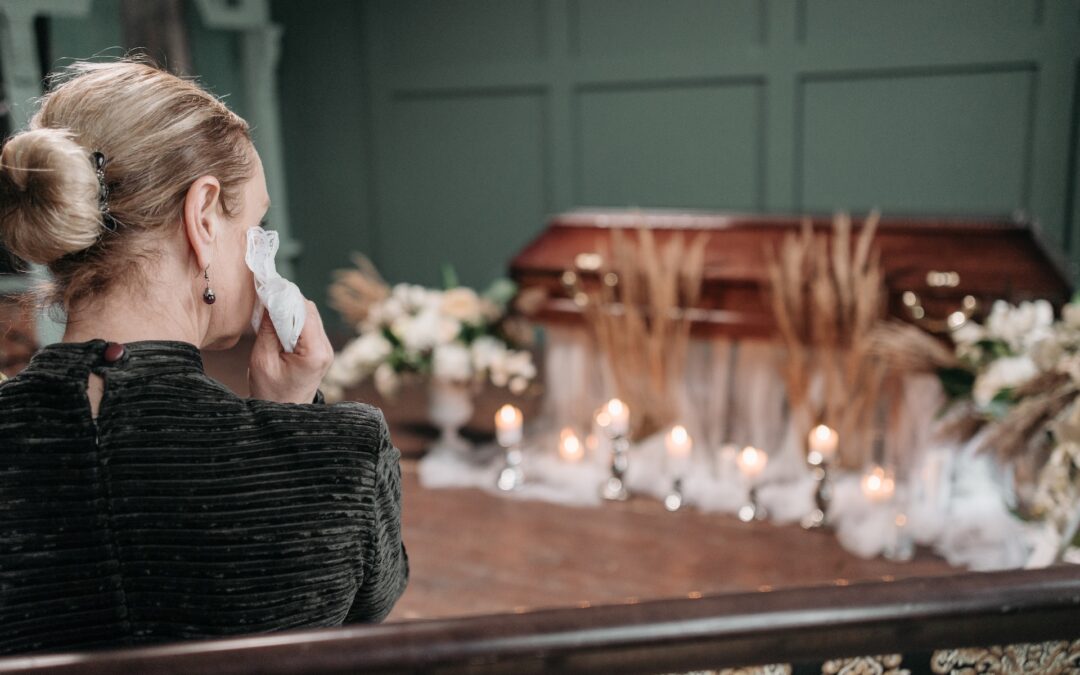But everything was not the way it should be. There was such a thing as too much power. And there would be a terrible price to pay if people found out he had it.
If you could bring someone who died back to life … would you?
My brother died in 2019. I miss the way he would cover his mouth and giggle about something funny. I miss the way his eyebrows shot up when he was surprised. I miss his daily question about what I planned to serve for dinner that night.
If I somehow found myself with the gift of raising the dead to life, would I bring him back? The Rising by Robert Ovies is a heart-pounding, gripping exploration of the ability to bring the dead back to life.
Father Mark, parish priest at St. Veronica’s Church, attends the wake service for his good friend and parish employee, Marion Klein, who recently lost a long battle with cancer. He prays that she will not really die but will live forever. He doesn’t consider that his words might come true in a stunning way.
As the funeral director cleans up after the wake service, straightening the chairs and preparing to turn off the lights, his eyes detect a small movement. One of Marion’s fingers begins to move.
Ambulances descend upon the funeral home: Marion, though unconscious, has a beating heart. Her mouth is wired shut for the planned burial. Even more shocking is the hospital’s eventual discovery that her body has been embalmed. Marion Klein, once undeniably dead, is now fully alive.
Unbeknownst to anyone else at her wake service, nine-year-old C.J. Walker touched Marion’s dead body with his small finger, whispering the words, “Be well, Mrs. Klein.” He didn’t know how the power came upon him or why, but C.J. was certain that, for whatever reason, those words and simple action restored Marion to life.
Which is scarier to a nine-year-old kid? Thinking you had the power to do magical things with dead people or thinking you were suddenly all alone with the power?
C.J. and his divorced mother, Lynn, find themselves surrounded—literally and figuratively—by people who could benefit from this incredible power. C.J.’s father, Joe, begins calculating the incredible profit he could reap from this opportunity. The federal government wants to “protect” C.J., but likely for their own benefit (what country wouldn’t want to possess the power to bring people back to life?). A millionaire with a sick son, a bishop who sees this as God’s effort to convert the whole world, crowds of people with sick relatives and friends seeking healing and restoration …
But from a mother’s perspective, all Lynn can consider is how quickly she may lose her son. How can she protect him from the frenzy, from potential kidnappers who would want to abuse his power? How could she ensure a normal life for him?
… C.J. was actually the most powerful person in the world. And he was the most valuable person, too, because, how much would people give to raise their dead?
This book raised many fascinating points to ponder. On the one hand, how often do I pray in boldness, asking God for a miracle? Do I really, truly believe He can move mountains? It’s almost as though we have been conditioned to assume God will only work in the small, coincidental moments.
Did he believe in real, honest-to-goodness miracles, or just in the good turns of events that the faithful thank God for and others call coincidences, which allowed everyone to stay cozy in their own beliefs because no one was ever sure?
At the same time, sometimes it becomes tempting to focus too much on the miracle and not enough on the Miracle Worker. Everyone likes to see something that defies logic, something mesmerizing and incredible. But we shouldn’t desire a miracle for a miracle’s sake. We should want God Himself more than any miracle. It reminds me of something Jesus said in the parable of the rich man and Lazarus: some people would never believe, even if someone were raised from the dead.
As a mother myself, the vulnerability of C.J. and Lynn’s innate reaction to protect him rang so true. Sometimes the powers that be tread on parental authority in an alarming manner, whether in the name of health, safety, or national defense. At points Lynn cooperates with those in charge, believing they know what is best. But parents are those who know what is best for their children and sometimes defending that right calls for drastic action, as Lynn comes to understand.
The novel also addresses the question of what it means to be alive versus dead. C.J. and Marion have a moving conversation at one point in the book. Marion describes for C.J. her experience of dying:
“What I’m trying to say is, we don’t really die. That’s what I want you to know. They say we do, but we don’t really die. That’s the gift.”
It seems as though C.J. is the one with the gift: he can bring dead people back to life. But really, the greater gift is passing from this temporary life into the greatest, fullest life with God in heaven. And the greatest rising isn’t a physical phenomenon but the unseen rising of a soul from sin into life of grace.
So would I bring my brother back? No. He’s still with me and I sense him—like the other day as I sat on the front porch, admiring the beautiful, sunny day, and a red cardinal perched in a nearby tree, looking at me and singing away … just as my brother would sing in church with all his heart.
My brother isn’t dead. He’s more alive than I.


